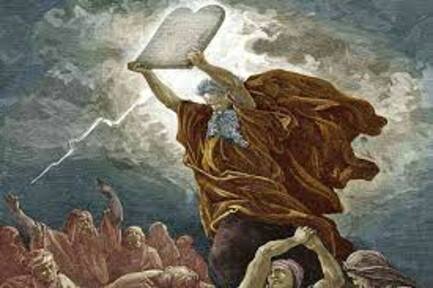On the Thora – Pfeffer in Haaretz:
‘Israel will be marking Shavuot – the festival commemorating the giving of the Torah at Mount Sinai – with a new state budget that prioritizes the study of Torah above all else.
A budget that dedicates billions of shekels to tens of thousands of adult men who devote their lives to study and to schools where hundreds of thousands of children are taught nothing meaningful but Torah and Talmud.’
(…)
‘On current demographic and economic trends, the budget is leading Israel to an unsustainable and disastrous future.
A shrinking working public will have to pay the taxes and bear the burden of Israel’s security and economy – until they refuse to do so. Skilled workers will emigrate and those who remain will revolt. Israel will lose the edge that allowed it initially to survive in a hostile region and, ultimately, prosper. Unless it is torn apart by civil strife before that happens.
There is a historic Jewish values-based criticism of the budget as well: That it is not actually prioritizing Torah, certainly not any historically recognized version of it. That, with the exception of a tiny elite of scholars, Torah was never meant to be studied to the exclusion of other subjects and skills or instead of being gainfully employed. That to force others to finance your Torah study against their will is a desecration of all that the Torah stands for.’
(…)
‘The late Prof. Menachem Friedman coined the term “society of learners” – an entire community devoted to study. This is a unique sociological phenomenon created by the Haredi leadership’s mission after the Holocaust to “rebuild” what had been destroyed in Eastern Europe, and the social and political conditions of modern Israel.
Even ultra-Orthodox Jews in the Diaspora, most of whom work full-time, are quietly critical of what has been created in Israel.
“I’m certain this wasn’t what the Hazon Ish intended,” an American Haredi rabbi told me last week. He was referring to Rabbi Avraham Yeshayah Karelitz, the leader of the “Lithuanian,” non-Hasidic stream of ultra-Orthodoxy who in 1952 demanded from Israel’s founding prime minister, David Ben-Gurion, that the Haredim be granted autonomy to continue studying Torah and leading their insular lifestyle in the new Jewish state. He used the famous parable of the “empty cart,” which he likened to secular Israelis, which must make way for the “loaded cart” (the Haredim).’
(…)
‘What this means is that Israel is now in the process of intentionally creating the world’s first post-work society. But unlike this future society predicted by thinkers like Oxford University economist Daniel Susskind in his books “A World Without Work” and “The Future of the Professions,” it won’t be automation and artificial intelligence that create an economy where most people will not have or need a job. It will be religious and nationalist politics.’
(…)
‘Those 10 percent of Israelis create over half of Israel’s exported goods and services. Ironically, these are the Israelis who are most opposed to continuing to finance the Haredi community. And they are the ones who, if they stick around and continue working and developing Israeli technology, will ensure the success or failure of Israel’s post-work society of scholars.
Never in the long history of the Jewish people have so many people learned so much Torah. And never have so many Jews paid for them to do so, against their will. Every Shavuot, we reaffirm our acceptance of the Torah afresh. If the Torah is to be believed, Moses originally delivered the Torah on the 2,448th year of the creation of the world. Now, 3,335 years later, it’s the Israeli high-tech sector which is delivering the Torah once again to the Jewish people.’
Read the article here.
A few years ago I had dinner with a fairly enlightened and orthodox rabbi in Amsterdam who said that assimilation will ultimately lead to the disappearance of the Jewish people.
Keeping the tradition alive, learning Thora were the only way forward.
From his point of view, understandable.
But the continuation of the shtetl in Eastern Europe in a Jewish state in the Middle East is contradictory by nature.
Giving tzedakah (charity) so that other people can learn instead of working is not exactly the same as a state that with the help of its monopoly on violence is collecting taxes in order to pay for a theocracy that a minority, not a small minority anymore but still, cannot wait to establish.
